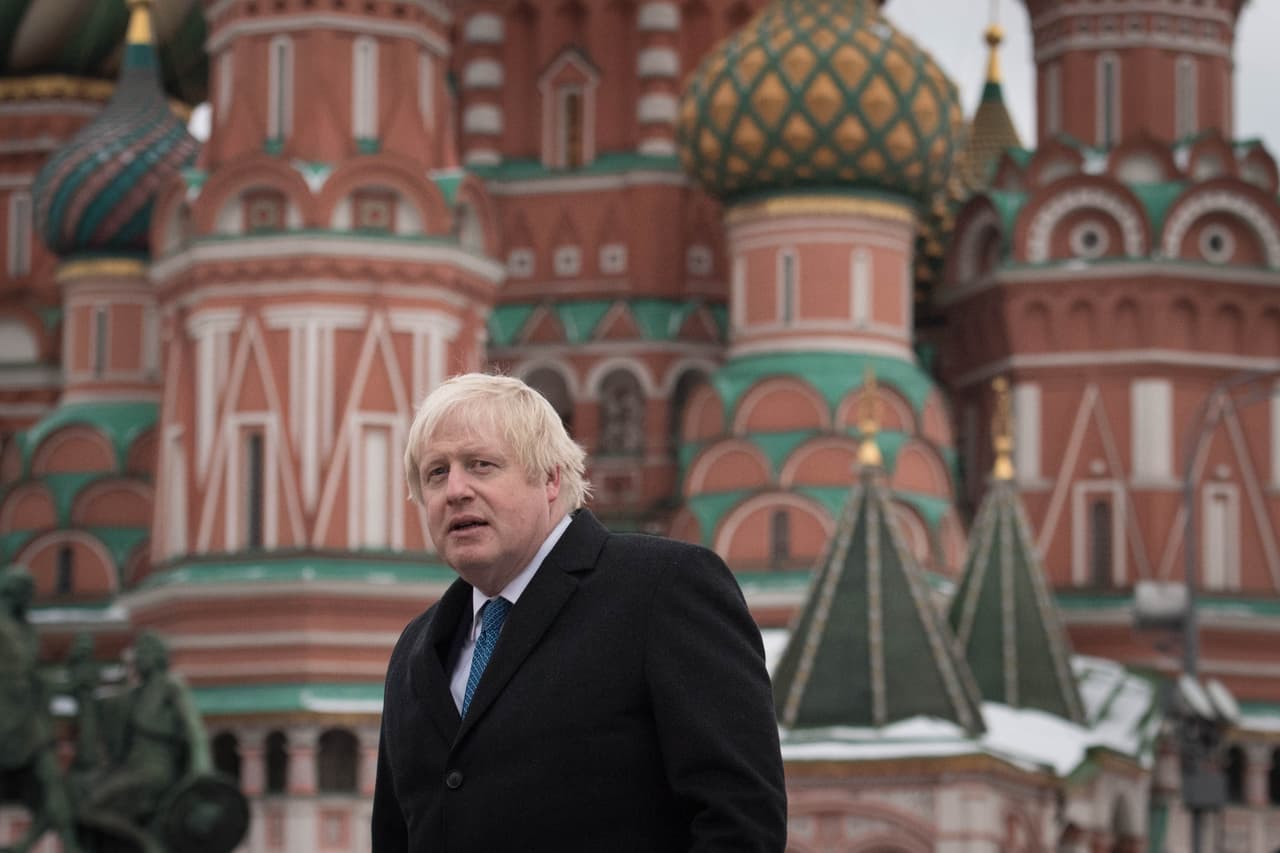
UK inaction emboldened Russia, ISC witnesses tell Bureau
Update, 27 November 2019: The Bureau has been force to end our legal challenge against the prime minister's decision to delay the release of the report. You can read the full explanation here.
Inaction by the UK and its allies in the wake of Russia’s 2016 US electoral interference may have emboldened Moscow to graver acts, including the fatal Novichok poisonings in Salisbury, members of the Intelligence and Security Committee (ISC) were told.
The Bureau of Investigative Journalism has launched legal action aimed at publishing the committee’s report on Russian interference in the UK political system before next month’s general election. A crowdfunder to support the action has raised more than £25,000 from more than 1,300 people in less than 48 hours.
Boris Johnson was handed the report, which had been vetted by committee members and security services, for final clearance for publication by mid-October, but blocked its publication until after the election. His decision met widespread condemnation, including from the committee’s chairman, Dominic Grieve.
It is not possible to see the evidence given by the UK's intelligence agencies to the committee until its report is published. However, the committee also heard from a small number of external experts on Russian influence, who are not legally prevented from discussing their evidence.
The Bureau has spoken with several of these people, who have described much of the evidence they gave to the committee. They often could not share all of their evidence, as some made specific allegations against individuals, or relied upon parliamentary privilege, which protects those who give evidence to committees against legal retaliation.
However, the concerns they have raised demonstrate the significant public interest in the publication of the full report. Foremost among them was a pattern of behaviour from Russia aimed at destabilising its opponents and silencing its critics – which, they told MPs, has intensified after lacklustre efforts by the UK to tackle it.
One stressed that the failure to mount a strong response to Russia after its invasion of the Crimea and eastern Ukraine had emboldened it to interfere on a greater scale than ever before in the 2016 US presidential election. The expert added that the weak response to this, in turn, emboldened Russia to yet more alarming acts, including the attempted assassination of a former double-agent in Salisbury, which led to the death of a British woman.
The committee heard there were fears that efforts had been made to soften up politicians and others in the UK to make action against Russia less palatable. Witnesses suggested the Russian state and oligarchs friendly to it had made overtures to multiple UK political parties.
These included, they said, efforts to fund extremist parties – as has been seen elsewhere in Europe – but may also include donations to the Conservative party from wealthy Russian business figures, and work to woo the prime minister himself.
One witness told the committee it was counter-productive to focus overmuch on official Russian institutions, saying that networks of high net-worth individuals and their associates often acted as informal agents of the state.
The UK, several witnesses suggested, is in a good position to take action to deter Russian efforts at destabilisation. Unlike many other European countries, the UK does not rely on Russia for energy, and London’s status as favoured bolthole for many émigrés means the government has leverage via sanctions and denial of visas to send clear messages to Russia’s elite.
However, the committee was told that this position of strength had been undermined by sustained efforts from Russia to subvert the UK’s financial sectors and regulatory agencies, and then the political system.
The Bureau is launching a long-term investigation into the role played by the UK’s political and financial institutions in enabling corruption from Russia, eastern Europe and beyond, and in covering up and laundering the reputations of dishonest elites.
The ISC witnesses also expressed bafflement at the suppression of the report, noting that the committee is not known for delivering bombshell reports, but instead usually offers measured and calm recommendations.
None thought the final report was likely to suggest Russia manipulated the Brexit vote in any significant way, with several reminding the ISC that opinion on the referendum was divided among Russia’s political elite; some preferred the idea of the UK staying in the EU and keeping it divided, while others thought Brexit would cause wider disruption.
They agreed, however, that there were much more vigorous efforts from Russia to fuel the bitter divides provoked by Brexit after the referendum. The country’s aims with many of its interventions are opportunistic, not ideological, one told the committee – it largely seeks to fuel existing political divisions, rather than specific electoral or referendum outcomes.
Despite the serious concerns raised by the witnesses, they can offer only a small snapshot of what the committee heard, which also included evidence from all of the UK’s major intelligence agencies and others.
In a BBC interview on Friday morning, Johnson said there was “no evidence” of Russian interference in UK politics, but reiterated he did not plan to publish the ISC report before the election.
The Bureau’s lawyers submitted a formal legal request for the release of the report to No 10 on Wednesday. The prime minister has until Tuesday to respond. If he fails to release it, lawyers have been instructed to proceed to a judicial review.
Header image: Boris Johnson on a visit to Moscow in 2017 Credit: PA Images
Our reporting on the Russia Report was funded out of Bureau core funds. None of our funders have any influence over the Bureau’s editorial decisions or output.




